Power generators come in very handy in places where there is no access to electricity. They guarantee continued operation of everyday devices during a power failure, as well as power tools on building sites without access to electricity. Which generator will work well in both of these situations? Read our article and find out.

Power generators come in very handy in places where there is no access to electricity. They guarantee continued operation of everyday devices during a power failure, as well as power tools on building sites without access to electricity. Which generator will work well in both of these situations? Read our article and find out.
- How does a power generator work?
- What should you pay attention to when choosing a power generator?
- Which generator should you choose? Diesel, petrol or LPG?
- Which power generator will be best for home use, and which will be more suitable for a building site?
- Which generator will best suit a welding machine?
- Which power generator should you choose – summary
How does a power generator work?
Power generators convert the chemical energy of a fuel such as petrol or diesel into electrical power. They use an internal combustion engine powered by one of the above mentioned types of fuel and a generator made of a stator and rotor. The energy generated by the engine sets the rotor in motion generating an electromotive force which affects the magnetic field, leading to an electric current in the stator circuits.
In addition to the above-mentioned elements, power generators are also equipped with electrical switchboards, as well as control and measurement devices for monitoring their condition. Some models are also fitted with protective covers to protect them against damage to the motor or generator.
What should you pay attention to when choosing a power generator?
When analysing the differences between specific models, you will compare their technical parameters. As with any other machine, there are certain things particularly worth paying attention to.
Single and three-phase power generators
One of the most important aspects of a power generator is the phase and the voltage associated with it, as this determines which electrical appliances can be connected to the generator. Two main types can be distuinguished:
- single-phase for devices requiring 230 V,
- three-phase for devices requiring a voltage of 400 V.
When choosing a generator for home use, first of all check the voltage of the devices you will be powering with it. Which hammer drill or refrigerator you want to connect could make a difference when choosing a specific model. An alternative option are power generators that combine both of the above types.
Generator power output
An equally important parameter as the phase and voltage is the amount of power generated, as it determines whether the generator will be able to supply enough energy. When checking this value, you should take into account the total power of all the devices that will be connected to the generator at the same time. It is important to take into account the maximum power, not the running power, because when starting such equipment the energy consumption is higher than during operation.
Additionally, if the power generator provides 230 V and 400 V, then the power of single-phase and three-phase devices should be added together separately. Once you know your total energy requirement, try to choose a generators with a 20-30% power reserve.
Starting a power generator
By starting, we mean the way in which the engine of a generator is switched on. There are two types available on the market:
- manual start – by pulling a cord you manually pull the crankshaft to start the engine.
- electric – switched on by turning a key located in the ignition switch.
The first type is usually slightly cheaper than the second, but requires a certain amount of force to start the generator. Versions with an electric start, on the other hand, are much easier to use.
Which generator should you choose? Diesel, petrol or LPG?
As already mentioned, the engines in these machines are powered by petrol, diesel or LPG. Their design is quite similar, but their performance and lifetime differ significantly. Which power generator should you choose?
Petrol powered generators
The main aspect that distinguishes this type is the relatively low purchase price compared to other models. Petrol-powered generators are also easier to service and repair in the event of a breakdown, and they generate less noise.
However, bear in mind that they are not suitable for endless hours of continuous work. They are best suited for sporadic use, e.g. when there is a power cut at home. Another downside is the relatively high price of petrol.
Diesel-powered generators
Diesel-powered generators are usually more expensive than the previous type, but also cheaper to run as they use less fuel. They are also more durable and have a longer service life. Diesel generators are suitable for continuous use, even for many hours per day.
LPG power generators
The most expensive power type of power generators are those powered by liquefied petroleum gas (LPG). Although the initial investment is higher, they are by far the cheapest to own. This is due to the price per litre of LPG gas, as well as high resistance to mechanical failure. As a result, the initial investment pays off very quickly.
Which type of fuel you choose depends largely on how often and how you intend to use your generator. Some people also believe that it is best to use a generator that runs on the same type of fuel as you use in your car.
Which power generator will be best for home use, and which will be more suitable for a building site?
A very important factor with regards to which generator to choose is where you will be using it. The most common places are private homes and building sites, but you can also use them anywhere else where you need access to electricity. Which power generators should you choose depending on where it will be used?
Which power generator is best suited for a biulding site?
Construction works require the use of many different devices and power tools. These can be both single-phase and three-phase devices, so a 400 V generator with additional 230 V sockets is a safer option, letting you can connect both a cement mixer and an angle grinder. It could be a good idea to prepare a list of devices that you will use in advance.
Working on a building site, you will often need to start the power generator very quickly, so it is best to choose a model with an electric start at the turn of a key. Pulling a cord to start the generator can be a nuisance in this case, as it not only takes more time, but is also tiring.
In the case of a building site your tools will probably be used regularly and intensively, so the power generator you choose should be durable and withstand continuous use. A diesel-powered generator will be best, as it will be less susceptibility to breakdowns, more durable and cheaper to run than a petrol-powered version.
Which generator will be best for home use?
Power generators for home use will not be used as intensively as those on building sites, so a cheaper model should be suitable. However, you should still pay attention to the parameters.
At home you will mainly use devices with 230 V, so a single-phase generator should be sufficient. If you intend to connect it to equipment with delicate components, such as computers or electronically controlled devices, then you should ensure high quality power. Inverter generators will be best in this case. They use technology that ensures a power current without amplitude or frequency fluctuations that could damage the electronics. In addition, they are lighter and smaller than traditional generators.
The choice of starter depends mainly on the user’s preferences. There is nothing stopping you from choosing a model with an electric start, but bear in mind that it will be more expensive than a manual alternative, which is definitely enough for private use.
If you are wondering which generator to choose for home use – petrol, diesel or LPG – then we can definitely recommend the first type. This is due to the fact that you will mainly use it during a power failure, and probably not more than a few hours at a time once in a while, so there is no point in investing in a more expensive diesel or LPG model.
Which generator will work best when camping?
In such situations you will not need much access to electricity, although this does not mean that you will not need any electricity at all. Depending on your needs, you might want it to power various mobile electronic devices, so you should base your decision on the same parameters as when choosing a generator for home use. Most such devices will work perfectly well with a simple, single-phase generator. And here too, petrol-powered models will be best. Cheaper models should be enough, as you will not have very demanding expectations.
Which generator will best suit a welding machine?
Welders and power generators very often go hand in hand. This is due to the fact that welding often needs to be done away from a power source, for example at building sites.
When selecting both devices, you should first check the power requirement of the welder. You will come across both single-phase and three-phase machines. Bear in mind that welding machines generally require a lot of power, and too little power will not allow the welder to function properly. Also take into account whether you will be connecting any other power tools, and then consider the total power of all the devices.
Read our other article about which inverter welding machine to choose, and find out everything you need to know about high-quality IGBT welding machines. When you’re on a job site, in a large manufacturing hall or at a shipyard, there’s not always a power source available for your electrical devices. This 2100 W Inverter Emergency Generator from MSW provides a reliable power source that’s always on hand. This 3800 W Inverter Emergency Generator gives you with even more power.
-
Welding Set MIG/MAG Welder – 250 A – 400 V – with cart + Welding helmet – Sub Zero – EASY SERIES
-
Welding Set Plasma Cutter – 90 A – 400 V – Pilot Ignition + Welding helmet – Carbonic – PROFESSIONAL SERIES
-
Welding Set TIG Welder – 200 A – 230 V – Pulse – digital – 2/4 Tact + Welding helmet – Carbonic – PROFESSIONAL SERIES
-
Welding Set TIG Welder – 225 A – 230 V – Pulse – 2/4 Tact – SELECTION + Welding helmet – Eagle Eye – ADVANCED SERIES
Which power generator should you choose – summary
There are many aspects to consider when choosing the best power generator for your needs. First of all, determine where you will be using it – at home or on a building site? Once you have done so, you can start looking for an appropriate model. The most important aspects to pay attention to are the voltage and power, but also check what kind of starter it has and whether it is an inverter generator.
Read our next article if you are interested in other equipment for a home workshop, ideal for DIY enthusiasts.

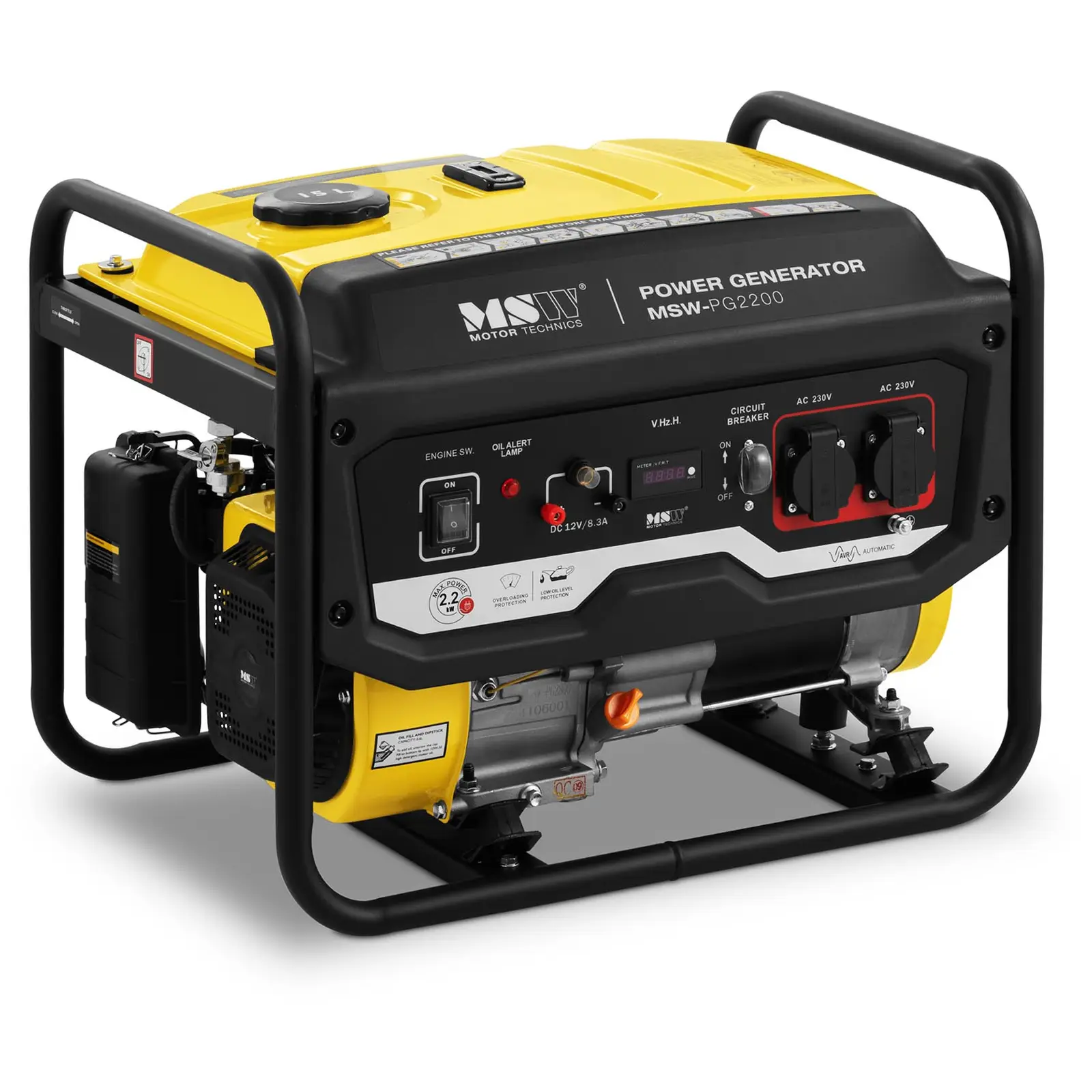
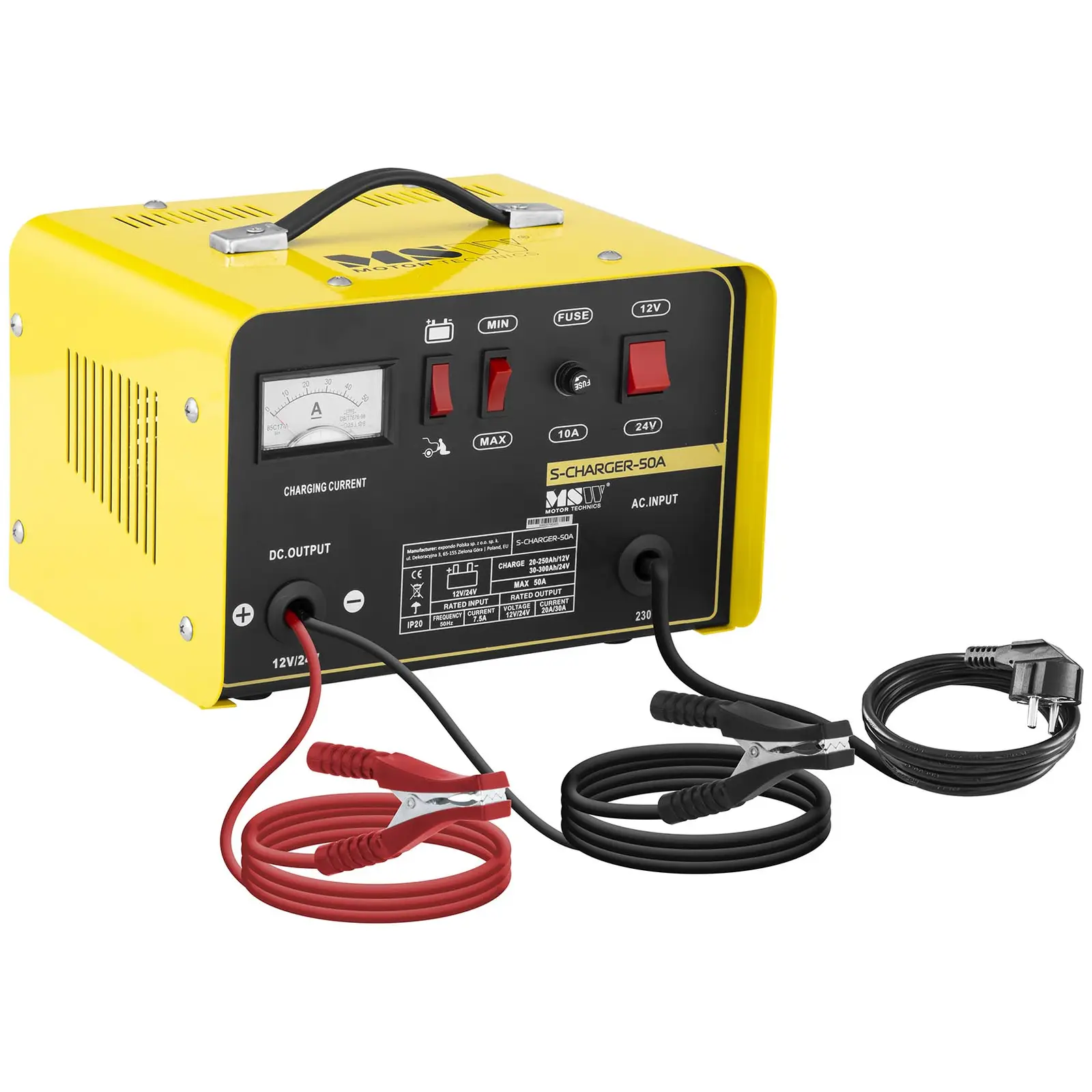
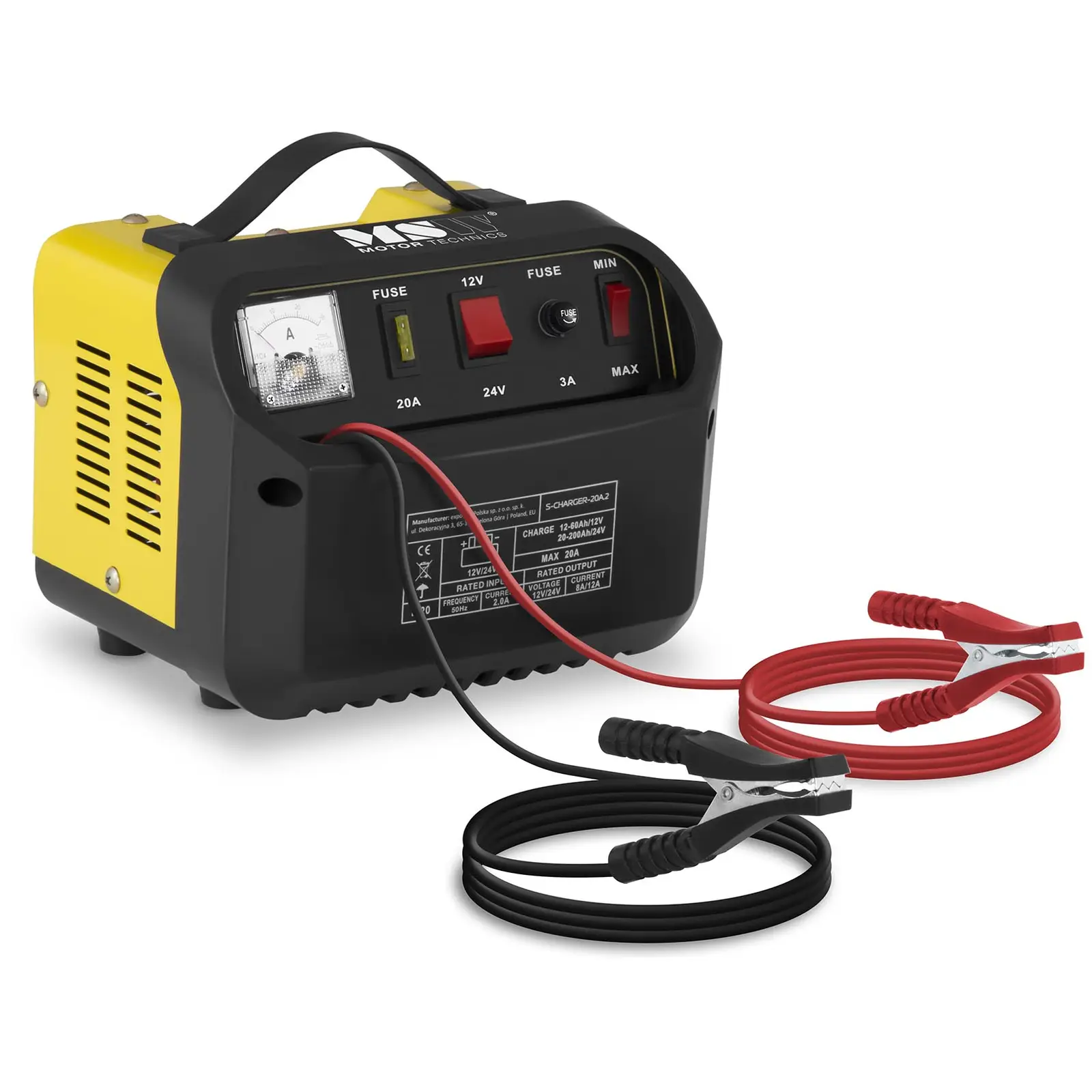
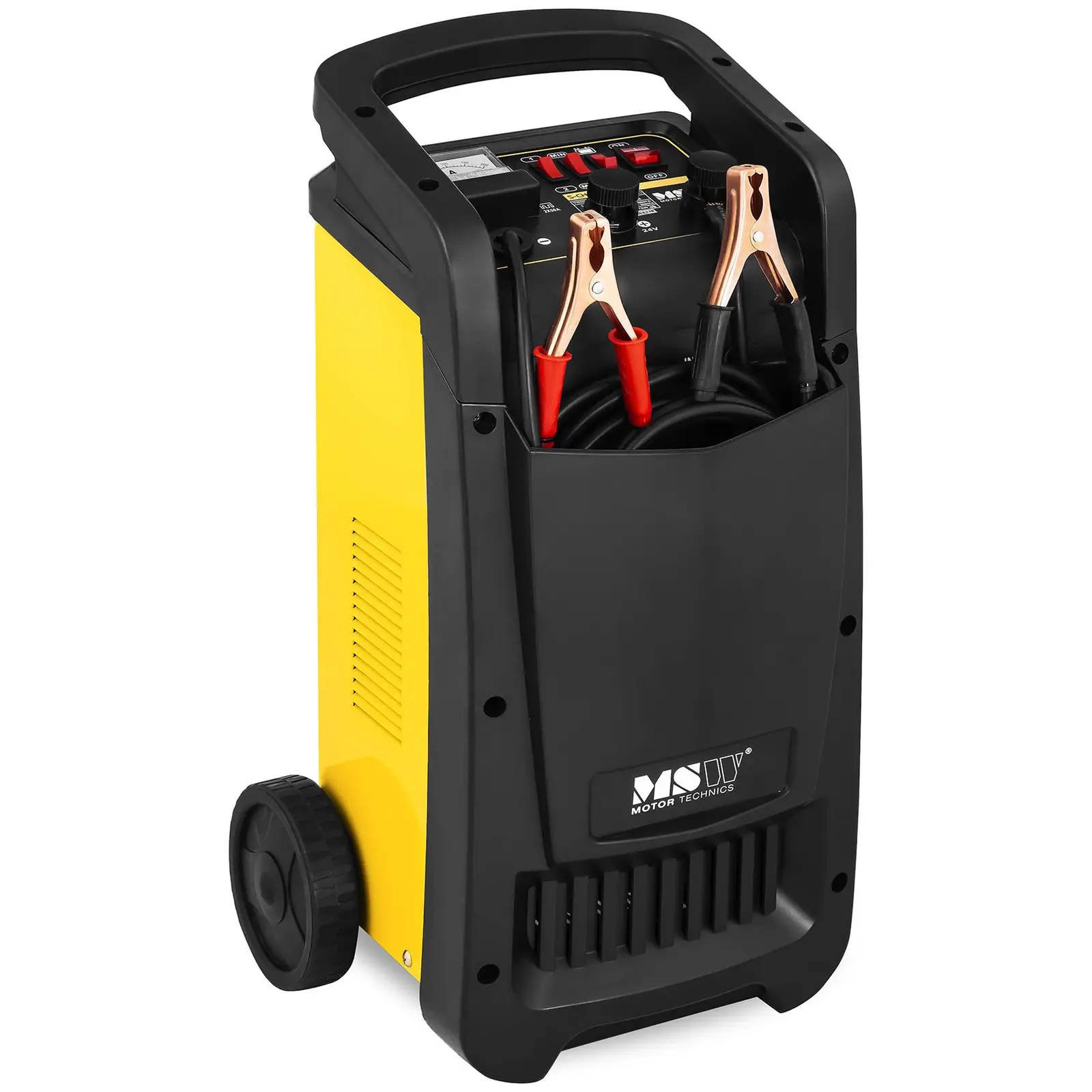
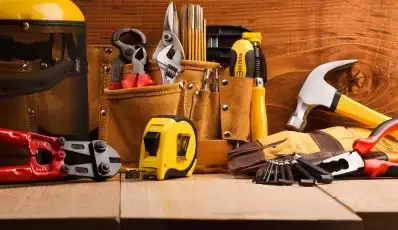

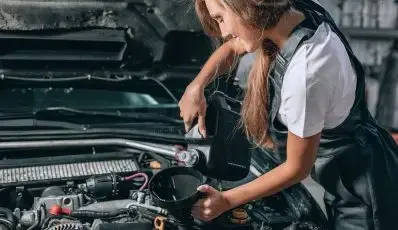
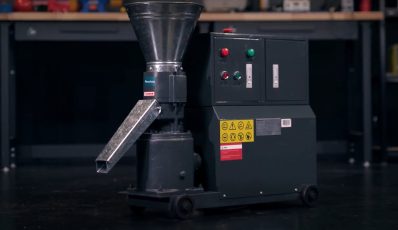

Share